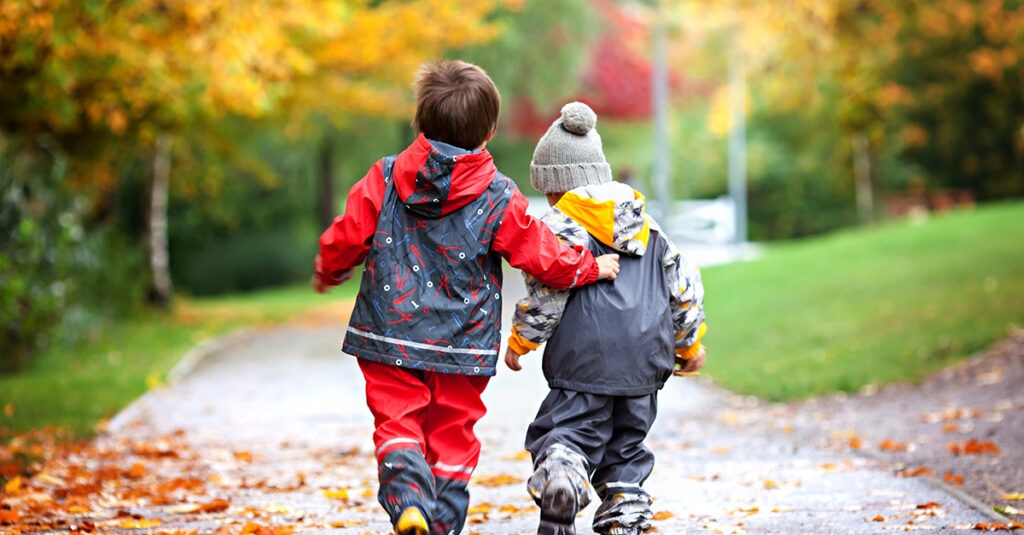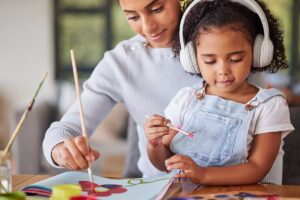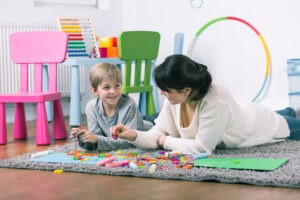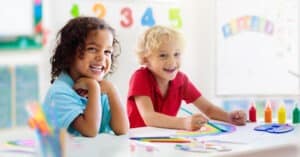Many of our most special childhood memories include those made with friends. Reflecting on this makes us realize just how important friendships are.
Numerous studies have shown that friendships support several aspects of a child’s development. Social-emotional, cognitive, and language skills are fostered when a child develops strong friendships with peers. Having friends is even linked to academic achievement.
Some children have trouble forming friendships because they have deficits in social-communication skills, sometimes due to a diagnosis such as Autism. They may not understand the appropriate ways to behave when interacting with others. For example, using appropriate eye contact, body language, and conversational skills, to make friends.
By knowing how to pinpoint what could be causing your child to have difficulties making friends, and the most effective ways to step in, you can play a huge role in helping your child make friends!
Assess the Situation
What behaviors is your child showing (or not showing) that could be causing him or her to have difficulty making friends?
If he or she does initiate playing or talking with other children, where does the breakdown appear that could be causing some social difficulties? Some possible difficulties are trouble staying on topic, not always taking turns, or limited awareness of what other children may be thinking (also known as “theory of mind”).
Talking to your child’s teacher can also help you get to the root of the issue. Ask your child’s teacher about specific skills and situations throughout the day to gain the most information. Bring up topics like these:
- Does my child show interest in a variety of activities, or does he narrow his focus to limited topics?
- What does my child like to do during recess?
- Does he or she attempt to play along with other children or side by side others (known as parallel play)?
- How do other children seem to react when my child plays with them?
- How does my child interact with peers during snack time or lunch?
Know What’s Expected
In order to help your child make a friend, it can be helpful to be familiar with which social developmental milestones children should achieve at certain ages.
Here are some of the social skills children are expected to develop, according to the American Speech-Language Hearing Association (ASHA):
Ages 3 to 4
- Takes turns
- Tries to clarify what they’ve said when not understood
- Makes jokes
- Ends a conversation appropriately
Ages 4 to 5
- Talks about emotions and feelings
- Tells a story that includes a sequence of events
- Takes another’s point of view
- Can change topics rapidly
School Age
- Has longer, more appropriate conversations (stays on topic, takes more turns when talking)
- Uses words to persuade others or give their opinion
- Takes another person’s point of view and modifies their language accordingly
- Able to read others’ body language
Role Play
Role playing at home ahead of time can be an effective way to help prepare your child for upcoming social situations where he or she could make a friend.
With younger children such as preschool-age, this might entail using dolls, figures, or pretend play like dress up. If you have a school-age or older child, try role playing by acting out the situation and talking openly about it.
By doing this, you can demonstrate the appropriate way to interact with others and form friendships.
Try to focus on the specific areas your child might need to work on in order to make friends. For example, an important skill like showing empathy to others.
Set a Good Example
Use everyday interactions as teaching moments to demonstrate positive, appropriate social skills. Say hello as you pass neighbors on a walk, make small talk in the checkout lane at the grocery store, and call a friend to chat about how their day was.
Your child will take notice, and will hopefully emulate these behaviors in their own world.
Highlight Common Interests
Studies have shown that children are more likely to show empathy to those who are similar to them.
Take notice of other children in your child’s class or at the park who seem to have interests that are similar to your child’s.
Start Small
Try setting up a one on one playdate with another child at your home or somewhere your child feels comfortable. Or, arrange for your child and a small group of his or her peers to do an activity that he or she enjoys.
Preparing your child the night before by talking about where they’ll go, who else will be there, and ways they can interact with the other children present.
Services That Can Help
If you have concerns that your child’s social or language skills are causing him or her difficulties making friends, consider seeking an evaluation with a Speech-Language Pathologist. Speech therapy can help children who have difficulties with expressive and receptive language skills and delayed social skills, in addition to disordered sound articulation, reading difficulties, and trouble with executive functioning skills.
TherapyWorks offers Speech Therapy with Speech-Language Pathologists experienced in helping children improve language, speech, cognitive, and social skills, which can boost their ability to form friendships.
TherapyWorks offers Speech Therapy, Occupational and Physical Therapy both in person and through teletherapy (nationwide). If you would like to learn more, or discuss your child’s specific needs, please don’t hesitate to reach out to TherapyWorks!




